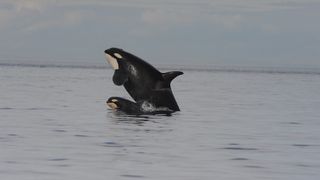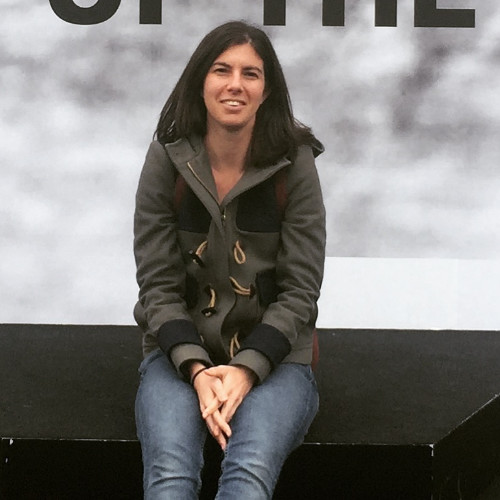Orca males are burnouts who let their moms do all the hunting, surprising study finds
Mama orcas are forgoing having more young and instead dote on their existing sons.

Killer whale mothers are sacrificing their own reproductive prospects to guarantee the future success of their sons.
While it's no surprise that mothers make sacrifices for their young, researchers have found that orca (Orcinus orca) mothers are taking the mama's boy notion to the extreme, continuing to care for their sons into adulthood, even if it affects their future chances of reproduction, according to a new study published Feb. 8 in the journal Current Biology.
Researchers have found that this doting mother-son relationship is true amongst the 73 resident orcas that currently make up the "southern resident" population, a group that inhabits the waters off the coasts of Washington state and British Columbia. Since 1976, researchers from the Center for Whale Research in Harbor, Washington, have been monitoring this well-studied population and noticed this "bizarre social system" where the mothers continue to hunt for their adult sons, according to a statement.
Because orca groups are matrilineal, "both the sons and daughters stay within their mom's group for their whole lives in this population of killer whales — and we think in most resident killer whale populations," first author Michael Weiss, research director for the Center for Whale Research, told Live Science. "But the sons especially keep strong social ties with their mothers and are more likely to follow their moms around."
While sticking with their moms may prove beneficial for the males, the daughters, on the other hand, are cut off entirely from prey sharing by their moms once they reach sexual maturity, typically sometime between 6 and 10 years of age, according to the statement.
Related: Pod of orcas frees a humpback whale from certain death. Was it intentional?
So, why are mom orcas giving their sons preferential treatment and not their daughters? Researchers think it all comes down to an evolutionary cost/benefit analysis.
Sign up for the Live Science daily newsletter now
Get the world’s most fascinating discoveries delivered straight to your inbox.
"Males are quite a bit bigger than females, so they need more calories and are also a little less maneuverable, so they may have less luck catching fish," Weiss said. "From the mom's point of view, there are some good reasons why they might want to preferentially help their sons. When daughters reproduce, their calf is in the same group as the grandma, and that means there's another mouth to feed in the group that might compete with the female's other offspring. So, there's a cost there to helping your daughter reproduce. Whereas with males, when they have their kids, they're usually born in someone else's group."
He added, "You get the same benefits in terms of evolution, with your genes being passed on to the next generation, without the cost of having another mouth to feed."
However, this coddling of males costs the mothers in the long run. Researchers found a "strong negative correlation" between females' caring for their grown sons and their probability of producing a viable calf. Each surviving son cuts a mother's chances of having a new calf by more than 50% in a given year, according to the statement.
"As an example, a 21-year-old female who doesn't have any kids she's taking care of right now and hasn't reproduced in the previous year, has about a 1 in 5 chance of having a calf," Weiss said. "If that female has one son that she's taking care of, that chance drops to a 1 in 10 chance. By taking care of these sons, the mothers have less of the food resources they need to carry these really costly pregnancies, which makes them much less likely to further reproduce.”

Jennifer Nalewicki is a Salt Lake City-based journalist whose work has been featured in The New York Times, Smithsonian Magazine, Scientific American, Popular Mechanics and more. She covers several science topics from planet Earth to paleontology and archaeology to health and culture. Prior to freelancing, Jennifer held an Editor role at Time Inc. Jennifer has a bachelor's degree in Journalism from The University of Texas at Austin.
